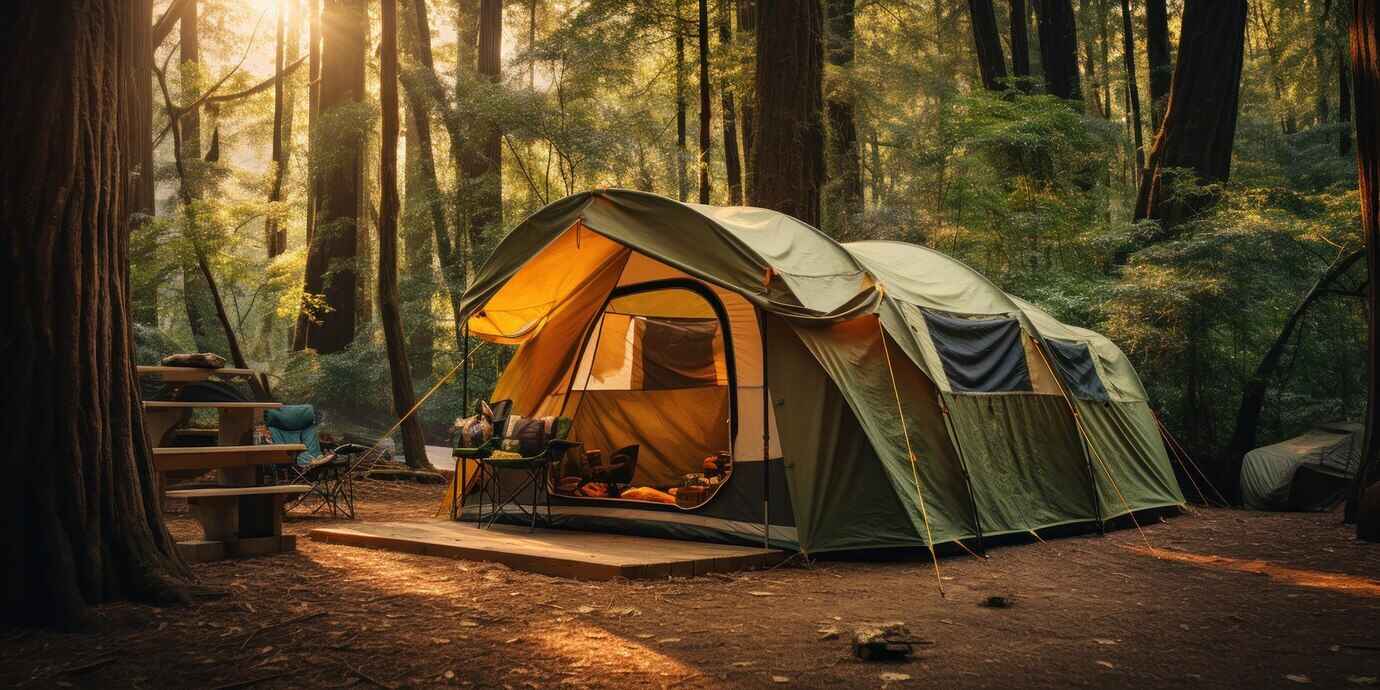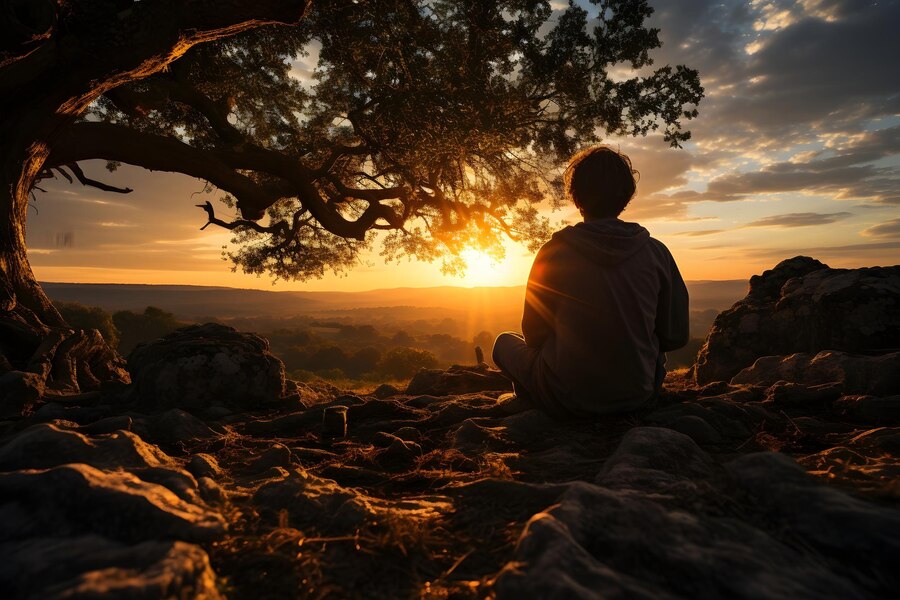Introduction
Imagine waking up to the soothing sounds of nature, stepping out of your tent to greet the morning sun, and sipping coffee beside a tranquil lake. This isn't just a rare vacation scenario; for many, it's a coveted lifestyle. Camping as a lifestyle isn’t just about the enjoyment of the outdoors; it’s about embracing a simpler, healthier way of life that connects you deeply with nature. Whether it’s weekend getaways in a nearby park or a nomadic existence in various natural settings, incorporating camping into your life can significantly enhance your physical health, mental wellness, and overall happiness. In this blog, we explore how transforming camping into a lifestyle choice rather than an occasional adventure can have profound benefits for your mind, body, and soul.
Benefits of Camping as a Lifestyle

Improved Mental Health
Embracing camping as a lifestyle offers profound benefits for mental health. First and foremost, it provides an escape from the often overwhelming pace of modern life. Without the constant buzz of city life and digital distractions, campers can unwind and de-stress in a peaceful setting. Studies have shown that spending time in nature can significantly decrease levels of cortisol, a stress hormone, fostering a sense of relaxation and well-being.
Additionally, camping increases exposure to sunlight, which can improve mood by boosting levels of serotonin, a neurotransmitter associated with feelings of happiness and calm. This natural mood enhancement is a welcome relief for those who may suffer from depression or anxiety. The simplicity of a camping lifestyle also encourages mindfulness and presence, as the natural environment invites campers to live in the moment, appreciating the beauty and tranquility around them.
Camping also provides unique opportunities for social interaction that can strengthen relationships and enhance social support networks. Whether it's sharing stories around a campfire or collaborating to set up a tent, these activities require communication and teamwork, fostering a sense of community and belonging.
Physical Health Benefits
Camping isn't just good for the mind; it also poses numerous benefits for the body. Engaging in outdoor activities such as hiking, swimming, or cycling can improve cardiovascular health and increase physical fitness. These activities naturally encourage exercise, which is vital for maintaining a healthy weight, boosting muscle strength, and enhancing endurance.
The outdoor environment itself contributes to physical health. Fresh air, free from the pollutants common in urban environments, improves respiratory health. Meanwhile, navigating uneven terrain can enhance motor skills and balance. The natural setting of a campsite often encourages more activity simply due to the necessity of gathering firewood, setting up camp, or fetching water.
Sleep patterns may also improve while camping. The natural rise and fall of the sun helps to reset our internal clocks, aligning our circadian rhythms with the natural world. The result is often more restful sleep, which is crucial for everything from brain health to metabolism.
Connection with Nature
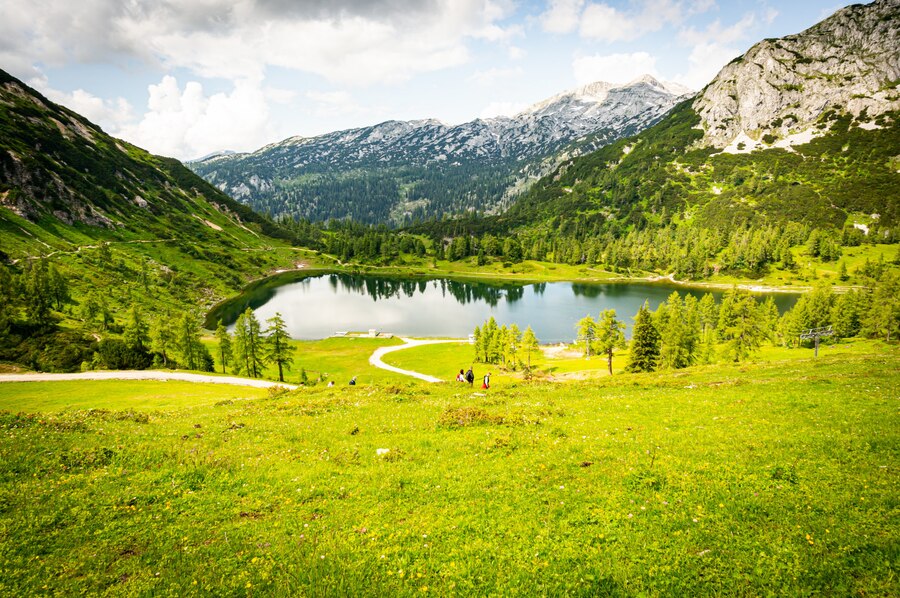
Appreciation for the Outdoors
Living a camping lifestyle cultivates a deep appreciation for the outdoors. Regular interaction with nature not only teaches us the intrinsic beauty of the environment but also how to live in harmony with it. For many, this frequent exposure deepens a personal connection to the land, rivers, mountains, and wildlife, fostering a sense of wonder and respect for the planet.
This appreciation often translates into recreational activities that are both enjoyable and health-promoting. Activities like bird watching, fishing, kayaking, and stargazing are not only fun but also encourage a more active lifestyle. Furthermore, this connection often instills a lifelong passion for outdoor hobbies, which can provide continuous motivation for staying physically active.
Moreover, when people enjoy and understand nature, they are more likely to advocate for its preservation. This stewardship mindset can lead to more sustainable lifestyle choices, even when not camping. Daily decisions become more eco-conscious, from conserving water to reducing waste and choosing more sustainable products.
Environmental Awareness
Camping as a lifestyle inevitably leads to increased environmental awareness. Living so close to nature helps campers observe firsthand the impact of human actions on the environment. This can be a powerful motivator for implementing more eco-friendly practices in everyday life. For instance, campers learn the importance of leaving no trace, which emphasizes the minimization of impact on natural sites by disposing of waste properly, preserving vegetation and wildlife, and keeping water sources clean.
Through such practices, campers become advocates for the environment, often participating in or initiating cleanup drives, conservation projects, and awareness programs. This heightened awareness and proactive behavior are crucial in the fight against environmental degradation and for the promotion of a sustainable future.
Moreover, the skills learned through camping, such as resource conservation, minimalism, and the efficient use of energy, translate well into everyday life. For example, using less water while showering or washing dishes, optimizing fuel usage while cooking, or choosing renewable energy sources for lighting and heating. These practices not only reduce one's carbon footprint but also promote a healthier, more sustainable planet.
In conclusion, adopting camping as a lifestyle offers incredible opportunities for personal growth, health improvement, and environmental conservation. It allows individuals to disconnect from the hectic modern world and reconnect with nature, where they can develop a profound respect and understanding for the environment and its countless benefits. Whether it's through the physical activities that boost health, the mental relief and community found around a campfire, or the sustainable practices that become second nature, camping can enrich lives in numerous ways.
Sustainable Living
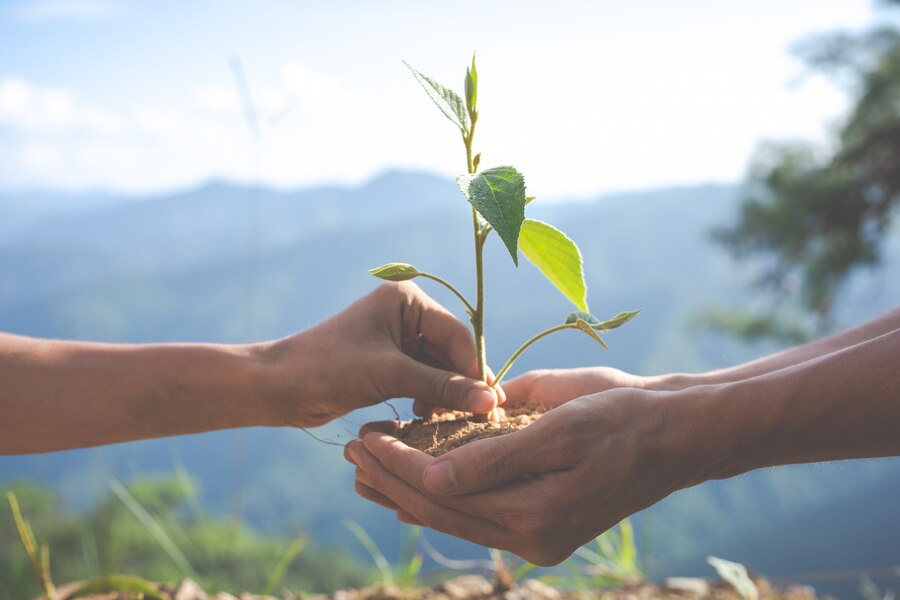
Living sustainably through camping isn't just about spending time outdoors; it integrates essential practices that reduce our ecological footprint, making a significant impact on our planet. This lifestyle encourages a connection with nature while promoting behaviors that protect it. By choosing to live minimally and more closely with the environment, campers often lead the way in sustainable living practices.
Low Impact Lifestyle
Adopting a low impact lifestyle involves making conscious choices to minimize environmental harm. Campers inherently practice this by limiting their use of resources and reducing waste. For instance, instead of relying on electricity from the grid, many campers use solar power, benefiting from renewable energy sources. They often use less water, reducing strain on local water supplies, and they minimize land disruption by following established trails and camping sites. This careful attention to how they interact with their surroundings serves as a brilliant model for sustainable living.
Community and Social Benefits
The camping lifestyle isn’t just about solitude and connecting with nature; it's also about fostering a sense of community and strengthening social bonds. Whether through organized group camps or spontaneous meet-ups at popular campsites, the opportunities to build and enhance interpersonal connections are vast.
Bonding with Family and Friends
Camping provides a unique opportunity for families and friends to bond. Away from the constant interruptions of technology and the stress of daily life, individuals find that conversations deepen, relationships strengthen, and memories are built. Activities like setting up the campsite, gathering around a campfire, cooking meals together, and exploring the outdoors require teamwork and cooperation, enhancing the sense of closeness and connection. These shared experiences not only bring joy and relaxation but also help to establish long-lasting bonds and a treasure trove of shared memories.
Connecting with Like-minded Individuals
For many, camping also serves as a way to connect with like-minded individuals who share similar values and interests. Conservation efforts, hiking groups, and outdoor adventure activities are examples where campers meet and interact with new people who quickly turn from strangers to friends. These interactions often lead to communities built on mutual respect for nature and a shared commitment to preserving it. Moreover, these networks can become supportive social circles that contribute to individual well-being and collective action towards environmental awareness and conservation.
In essence, the camping lifestyle offers more than just a temporary escape from the urban environment. It encourages sustainable practices, fosters community building, and enhances social relationships, which contributes to a more environmentally conscious and socially connected world. Whether it’s through practicing the 3Rs—reduce, reuse, recycle—or connecting with family, friends, and fellow nature enthusiasts, camping ingrains habits and forms bonds that can last a lifetime.
Tips for Making Camping a Lifestyle
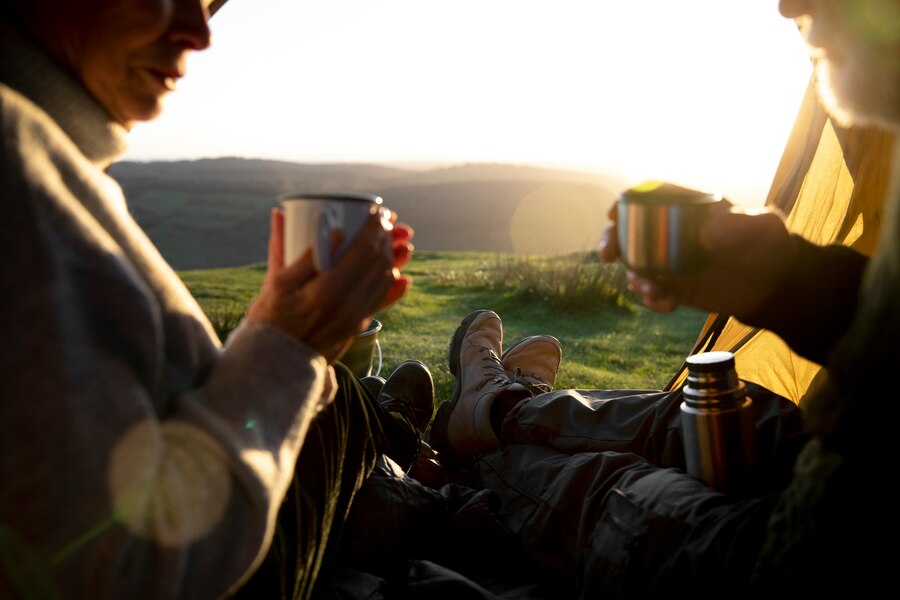
Adopting camping as a lifestyle doesn't mean you have to give up your day job or move permanently into the wild. It’s about integrating the principles of outdoor living into your everyday routines, so you can enjoy the tranquility and health benefits of nature routinely. Here are some tips to help you embrace camping as part of your daily life.
Integrating Camping into Daily Life
Embedding the spirit of camping into your daily life can be both fun and fulfilling. Start by planning regular camping trips, whether it's during weekends or set vacation times. Gradually, these escapes will not just be excursions, but a vital part of your lifestyle and wellness routine.
- Start Small: If you're new to camping, begin with short, local trips. As you become more comfortable, you can gradually increase the duration and remoteness of your camps.
- Gear Up: Invest in quality camping gear that suits your needs. Having the right equipment can make camping more enjoyable and less of a chore.
- Learn Basic Skills: Understand the basics of camping, such as how to set up a tent, cook outdoors, and leave no trace principles to ensure you and others can continue to enjoy pristine natural environments.
- Engage with a Community: Join local camping or hiking groups to learn from others, share experiences, and make new friends with similar interests.
- Bring Nature Home: When you're not camping, bring elements of nature into your home. Grow plants, use natural materials in your decor, and regularly open your windows to let in fresh air and natural light.
These steps encourage a gradual, enjoyable transition to making camping and contact with nature a core part of your lifestyle, ultimately enriching your understanding and appreciation of the environment around you.
Conclusion
As we wrap up our exploration of camping as a lifestyle, it's clear that this simple yet profound choice offers more than just a break from the daily grind. Embracing the great outdoors through camping not only reconnects you with nature but also enhances your physical health and mental well-being. By choosing to live sustainably and aligning closely with the rhythms of the natural world, campers contribute positively to environmental conservation. Whether you’re seeking solitude under the starlit sky or fun-packed adventures, camping can enrich your life in countless ways. May your journeys be filled with remarkable discoveries and a deeper appreciation of the world around us.


